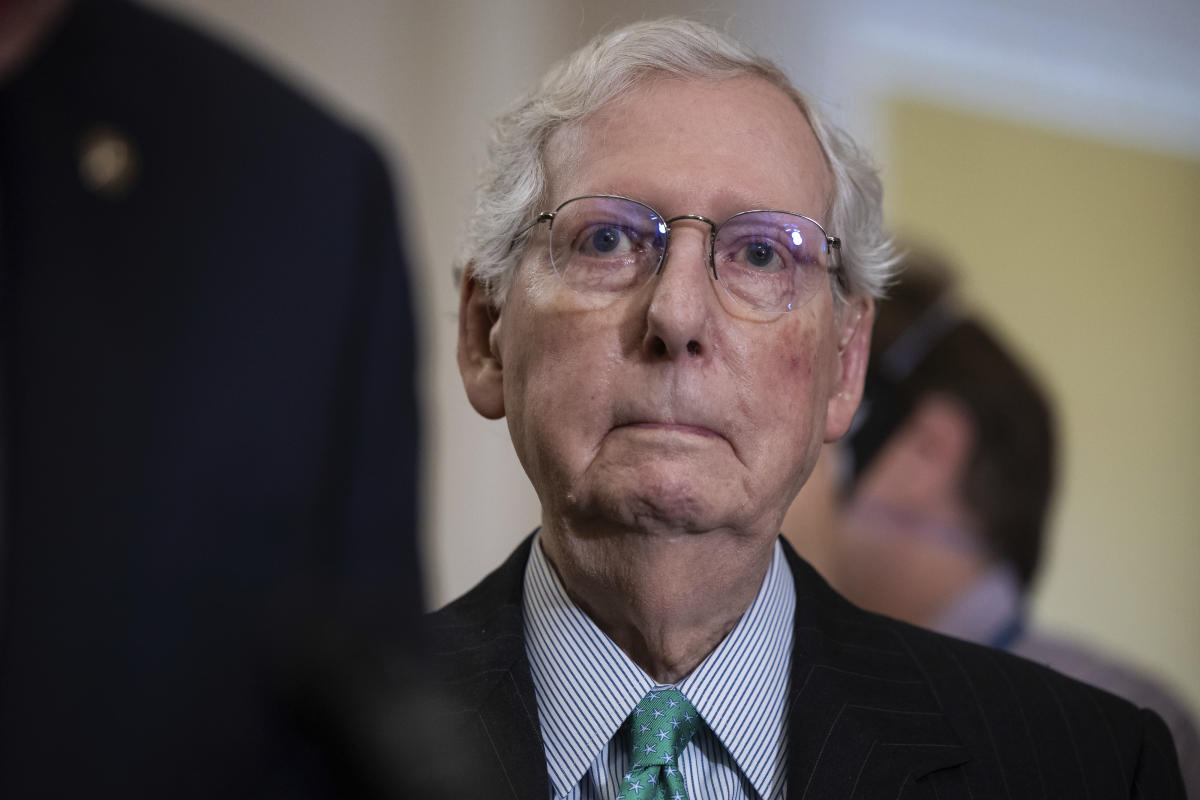Senate GOP leader Mitch McConnell is defending Congress’ ability to permit voting by “proxy” when members are absent, a practice adopted by House Democrats at the height of the COVID pandemic despite intense opposition from Republicans.
In a brief filed Friday in federal court — authored by former Attorney General William Barr — McConnell says that despite his personal opposition to proxy voting, the House and Senate have total constitutional authority to determine the way they conduct business.
“Despite his fierce opposition to proxy voting, Senator McConnell believes it critical that courts nevertheless respect each house of Congress’ power to ‘determine the rules of its proceedings,’” Barr wrote on McConnell’s behalf.
McConnell’s position puts him at odds with the vast majority of House Republicans, who spent years fighting a losing battle in court to overturn the practice, which was initiated in 2020 by then-Speaker Nancy Pelosi. The House GOP leader at the time, Kevin McCarthy, sued to block the practice but was dealt defeats by two federal courts before the Supreme Court declined to take up the issue.
However, in February, a federal district court judge in Texas ruled that the House’s use of proxy voting violated the Constitution, contending that it requires a majority of members to be physically present to conduct business. The ruling, if upheld by appellate courts, threatens to unravel large and complicated legislative packages adopted with decisive votes cast by absent members.
McConnell says the ruling is particularly problematic because it presumes courts have a role in judging Congress’ internal procedures. The district court judge — Trump appointee James Hendrix — never defined what it means to be “physically present” to cast votes, McConnell noted, and said establishing such an “ironclad” restriction would be “debilitating” for Congress.
McConnell argues that the ruling “threatens Congress’s ability to conduct business on a day-to-day basis” and would remove “necessary flexibility,” noting that there may be other national emergencies that could require voting remotely. He said it could particularly devastate common Senate practices like voice votes and seeking unanimous consent.
The matter is pending before the 5th Circuit Court of Appeals, a conservative court that has at times pushed legal boundaries only to be reined in by the Supreme Court.
McConnell isn’t alone: Homeland security leaders from multiple administrations and advocacy groups who depended on programs funded during the height of the COVID pandemic are also urging the appeals court to overturn the lower court’s ruling.
